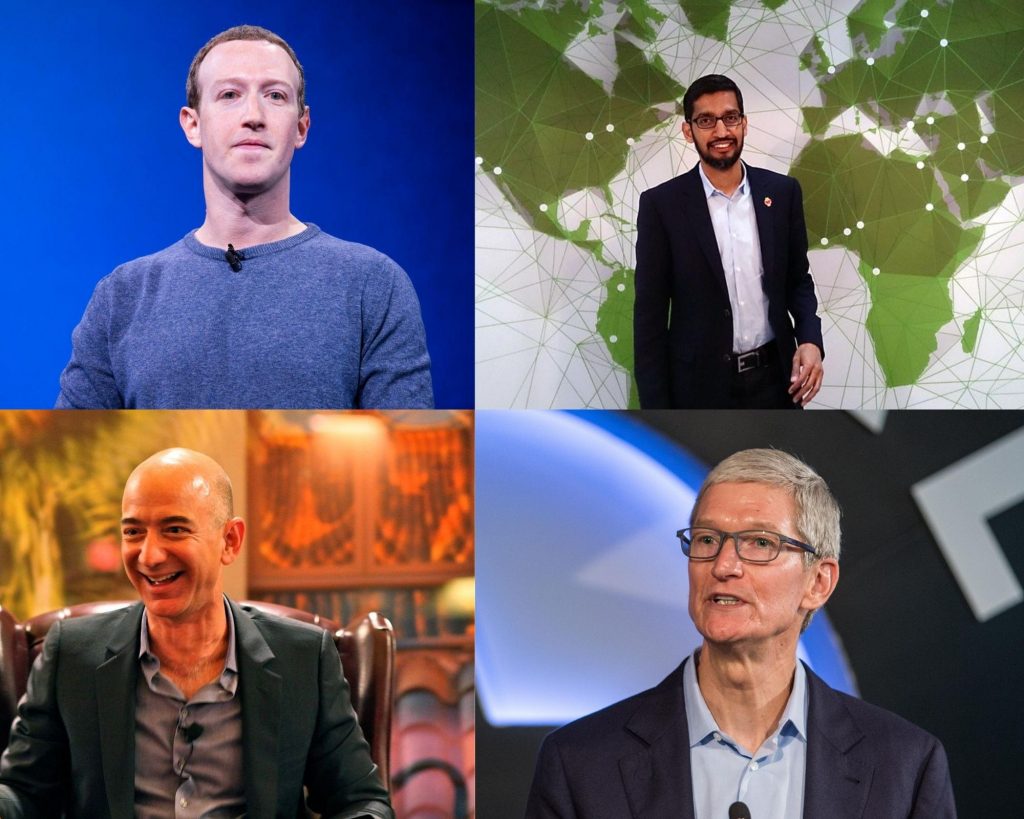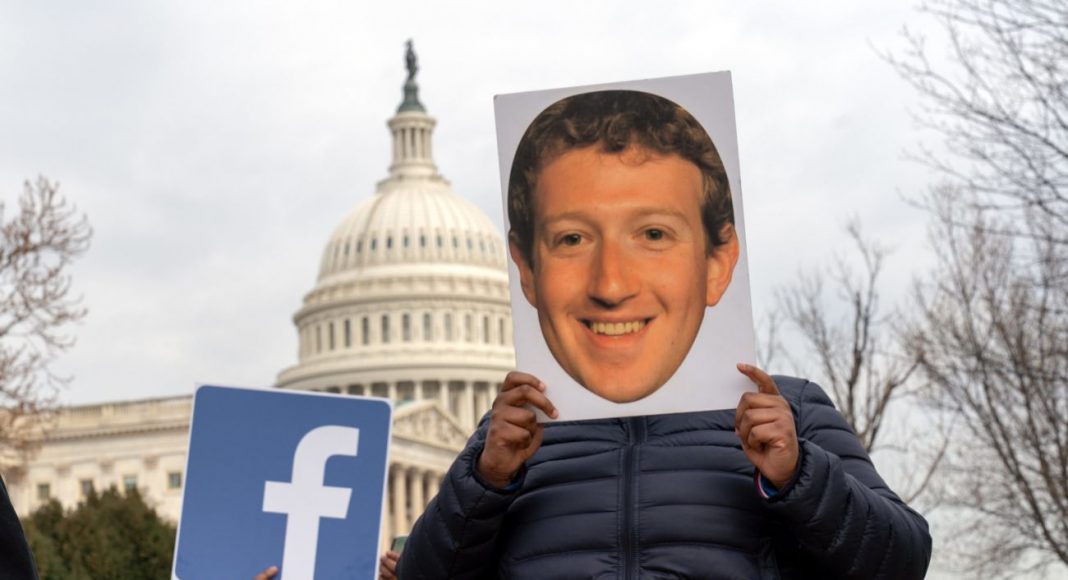This week, the House Committee on the Judiciary will hold a hearing on digital platforms and market power, during which members will get to question the CEOs of the four dominant tech platforms: Amazon, Apple, Facebook, and Google. This would be a rare opportunity for elected officials to wield their power. Here’s how they should do it.
On Wednesday, July 29, the House Committee on the Judiciary will hold a hearing titled Online Platforms and Market Power, during which members will question the CEOs of the four dominant tech platforms: Amazon, Apple, Facebook, and Google. The hearing was originally scheduled for Monday but was postponed to Wednesday due to memorial services for the late Rep. John Lewis.
The upcoming hearing presents an opportunity for elected officials to wield their power against Big Tech. But will they use it? And to what effect?
Although the hearing falls under the ambit of the antitrust subcommittee, and the title of the hearing contains an antitrust term (“market power”), it would be a mistake for legislators to limit the scope of the inquiry to antitrust solutions. Antitrust is but one tool in the antimonopoly toolkit, alongside other tools such as privacy regulations, rules against self-preferencing, or limits on the misappropriation of a content provider’s data.
US antitrust laws aimed at policing single-firm monopolies, which fall under Section 2 of the Sherman Act, have been severely limited by the courts. And the agonizingly slow pace of antitrust does not match the urgent need to curb the platforms’ power before they inflict lasting harm on independent and competing apps, content providers, and merchants, toiling away at the “edges” of the platforms.
Indeed, one solution to leveling the playing field between a dominant platform and atomistic suppliers—permitting collective bargaining among news publishers in their dealings with Facebook, or among app developers in their dealings with Apple—ironically involves less antitrust.
In contrast to the European Commission, which has taken an aggressive stance when it comes to protecting European consumers from Big Tech’s worst abuses, American antitrust enforcers have been sleeping at the wheel. Part of the problem could be explained by differences in standards and remedies: In Europe, the competition authority uses a blend of antitrust and regulation (for example, capping fees that payment card systems impose on merchants), and the burden of proof falls on the target of the investigation rather than on the complainant (as it does in the US).
Furthermore, as economist Thomas Philippon shows in his book The Great Reversal, the returns for lobbying antitrust regulators are much higher in the US than in Europe, suggesting that our regulatory agencies could be captured by the very firms they are supposed to regulate. And new evidence on the DC revolving door reveals that Big Tech effectively plucks staff from the Department of Justice’s Antitrust Division, the Federal Trade Commission, and the House and Senate Antitrust Subcommittees—a stealthy form of forestalling investigations and future regulation.
Notwithstanding its inadequacies, there are certain meritorious antitrust cases that could be brought against the platforms under current antitrust law. For those, there is no need to tweak the laws—the committee can use the hearing to gather information that could be helpful in current and future antitrust prosecutions by state attorneys general, federal antitrust agencies, or private enforcers. For anticompetitive practices that escape antitrust scrutiny, however, the committee should address those abuses with new laws. These are lawmakers, after all.

As for Wednesday’s Big Tech hearing, here are a series of questions that lawmakers should put to each of the Big Tech CEOs:
Jeff Bezos (Amazon): What are Amazon’s costs and revenues for Amazon Prime? For your advertising arm? For your fulfillment arm? For your private labels? How much of your revenue comes from the United States? Are independent merchants downgraded in search results if they decline to purchase your fulfillment services? What is your policy of allowing competing streaming services onto your platform?
Sundar Pichai (Google): What motivates Google’s self-preferencing of affiliated properties in search? How does it benefit your search customers? How much revenue does Google derive from your affiliated properties when a customer clicks on a link? Why is this not deceptive, especially if customers don’t understand how the algorithm gives extra weight to Google-affiliated content?
Mark Zuckerberg (Facebook): Has Facebook ever threatened to appropriate an independent app’s functionality during a negotiation to acquire that app? Aside from Vine, has Facebook ever denied Application Programming Interface (API) access to an app provider that Facebook deemed a potential rival? Did Facebook integrate its messaging services across apps so as to create an efficiency defense against a future breakup? Could Facebook abide by a collective bargaining regime, in which small newspaper publishers could collectively negotiate the payments from advertising revenues generated from Facebook?
Tim Cook (Apple): Why does Apple allow certain apps, such as Netflix, Dropbox, and Uber, to escape paying its customary fees, yet imposes such fees consistently on smaller apps? Are you concerned that imposing in-app fees or a tax on in-game items could lead app developers to charge higher app prices, or distort the design choice of app developers? Would you concede that Apple’s claims on ancillary or distant revenues such as in-app purchases or purchases made (say) two years after downloading the app seem weaker than your claims on initial subscriptions or in-app purchases made closer to the initial download? Could Apple abide by a collective bargaining regime, in which small app developers could collectively negotiate the payments from subscription revenues generated from Apple?
For all witnesses: Could your platform abide by a nondiscrimination rule that prevented you from steering searches to affiliated apps, content, or merchandise? Would such a rule cause you to invest any less in your platform? Would it cause you to invest any less in vertical or adjacent markets? Could you abide by a rule that barred the misappropriation of data from third-party content providers and merchants?
Disclosure: Hal Singer does not currently work for or against Amazon, Google, Facebook, or Apple in any pending antitrust litigation or consultation. He has previously consulted Apple in a copyright dispute in Canada. The views and opinions expressed in this article are those of the author and do not necessarily reflect the official policy or position of Econ One or its members.






